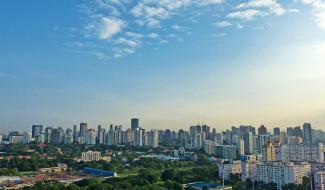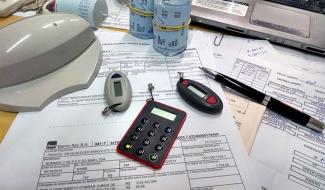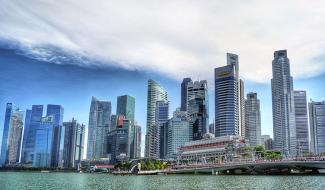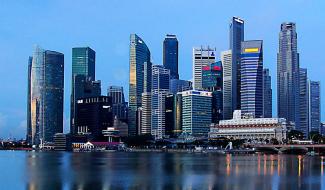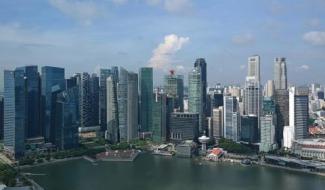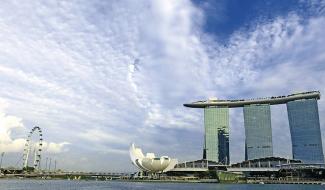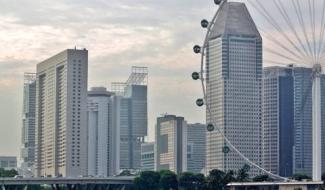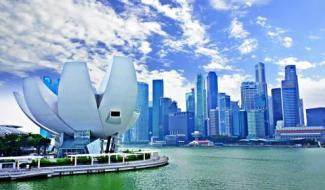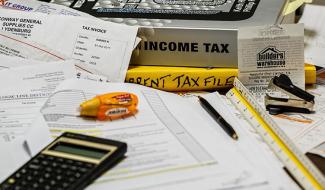
The State of Singapore is a free-trade open market since its independence; the city-state allows trade and commerce with little restrictions. In the early days of independence, the commercial businesses in Singapore had to pay a multitude of taxes for different governmental organizations for conducting business operations, however in the next few years the tax rates gradually increased, it had pressure on the Singapore companies in paying the taxes hence GST was introduced to maintain the competitiveness of the Singapore economy.
Background of Implementing GST in Singapore
Due to such changes in the business ecosystem, the high tax rates were deemed to be uncompetitive for the Singapore’s economic growth, hence the under the recommendation of the 1986 Economic Committee it was decided to reduce the direct taxes converting it into indirect locations. The government of Singapore understood the need for tax reforms to make Singapore an attractive investment location for investors, to maintain its international competitiveness for businesses and sustain its economic growth by generating substantial revenue.
The Goods and Services Tax (GST) was implemented in Singapore in 1994; the GST was designed to be an integrated tax system with a single tax rate of nearly 3% giving assurance that it will not be raised for five years. Consequently, the government of Singapore was focused on allowing people to get adjusted to the new tax measures gradually increasing the GST rates to match the economic growth. Furthermore, to prevent unfair pricing of goods due to GST, the Committee Against GST Profiteering (CAP) was also set up in 1994 to investigate complaints and feedback on profiteering or unjustified price increases using GST increase as an excuse.
Advantages of GST in Singapore for Businesses and Individuals
- Exclusive Single-tier Corporate tax system
- More straightforward compliances for import and export of goods
- Streamlines the tax procedures for consumers and businesses
- Consumer-friendly as the tax is a single window taxation system
- Availability of input tax credit on capital goods
- Reduction in Corruption and Tax Evasion
- Registering to GST gives your company the credibility as a large organisation
- Savings and investments are non-taxable under this system
Categories for GST in Singapore
|
Types |
Taxable Supplies |
Non-Taxable Supplies |
||
|
|
Standard-Rated Supplies |
Zero-Rated Supplies |
Exempt Supplies |
Out-Of-Scope Supplies |
|
Goods |
All of the local sales in Singapore (i.e., the sale of television, home appliances etc.) |
Export of Goods (i.e., the sale of electronics to an overseas customer through shipping) |
Sale of Rental of unfurnished residential property Importation and local supply of investment in precious metals |
Sale where goods are delivered from overseas to another place overseas Private transactions |
|
Services |
Most local provision of services falls under this category. (i.e., provision of spa services to a customer in Singapore)
|
Services that are classified as international services (i.e.,air ticket from Singapore to Thailand (international transportation service) |
Financial Services
(i.e., Issue of debt security) |
|
GST for a Singapore Company
As business registered in Singapore, the company must register for GST when the taxable income exceeds SGD$ 1 million, however, if the company does not exceed the SGD$ 1 million turnovers per year one may choose to register for GST after careful consideration voluntarily.
Once a company has registered for GST in Singapore, as a company you must charge GST on your supplies at the prevailing GST tax rates according to the type of goods and services you offer. Besides, the GST is exempted for certain relevant supplies that are considered non-taxable supplies. In addition to this, a specific exception is given for goods and services that are subjected to customer accounting.
If you can reasonably expect that your business will be making more than SGD$ 1 million in the year, you must register yourself with IRAS. Otherwise, failure to register your business with IRAS within the established time frames your business may be charged with penalties. Surprisingly, there are anti-avoidance laws and provision in Singapore that ensures that business entities are not established merely to keep turnovers less than the threshold value for avoiding GST registration.
Future of GST in Singapore
In the upcoming years, Singapore's Goods and Services Tax (GST) is set to increase from 7 per cent to nearly 9 per cent in sometime between 2021 and 2025. This increase in GST is due to three major factors as the Singapore government is expecting an increase in spending for healthcare, infrastructure and security sectors in the further years to come. The three major factors for GST increase depend upon the growth in the country's expenditure, the buoyancy of the Singapore's taxes and economic growth rate of the country.
Singapore government has committed itself significantly in encouraging business and trading across borders; it is the government's primary goal to accelerate and streamline business handlings with the government. With nearly 20 Free Trade Agreements (FTA’s), more than 70 Double Tax Agreements (DTA’s) it is the focus of the government to make Singapore the best place in Asia to do business internationally by nurturing innovation, facilitating trade & investment, minimising trade and attracting highly skilled international talent to Singapore.
If you're looking forward to starting your company or business, then Singapore is the best choice for incorporating your business. The tiny-Asian state has a state-of-the-art infrastructure with excellent facilities, effective tax systems, efficient governance and a robust legal system that accelerates your business growth. Contact us, for registering your company in Singapore our expert team can assist you with all the procedures ensuring all the regulations and compliances according to the Singapore laws.





